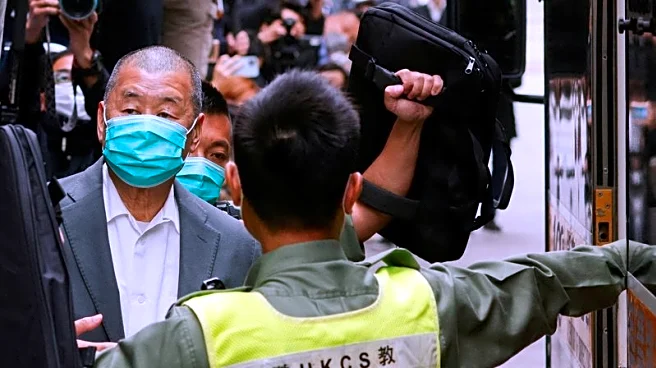Rapid Read • 8 min read
The global refugee crisis has reached unprecedented levels, with millions displaced due to civil wars and weak states. According to recent United Nations figures, there are 22.5 million refugees and 38 million internally displaced persons worldwide. The crisis is most severe in countries like Syria, Somalia, and Afghanistan, which are experiencing protracted civil wars. Refugees often face security threats even after fleeing their home countries, as host states struggle with the destabilizing effects of large refugee populations. These crises place immense strain on host states' resources and can exacerbate existing political, ethnic, or religious tensions. Host states express concern over the destabilizing effects of sizeable refugee populations, fearing loss of power due to economic hardship and social pressures.
AD
The refugee crisis has significant implications for international security and host states' stability. Large-scale forced displacement strains resources and can lead to political instability in host countries. The presence of refugees can alter ethnic balances, potentially leading to conflict. Host states may use refugees as leverage in negotiations with Western countries, which are often reluctant to accept large numbers of asylum seekers. This manipulation of refugee populations for political purposes can undermine international legal principles of refugee protection. The crisis highlights the need for coordinated international efforts to address the root causes of displacement and provide adequate support to host states.
Host states may continue to face challenges in managing refugee populations, with potential for increased tensions and conflict. International organizations and donor countries will need to provide substantial support to host states to prevent further destabilization. Efforts to resolve the underlying conflicts in refugee-sending countries are crucial to reducing displacement. The international community must also address the legal and humanitarian needs of refugees to ensure their protection and integration into host societies.
The refugee crisis raises ethical and legal questions about the treatment of displaced populations. Host states' responses to refugees are influenced by historical experiences with displacement and civil conflict. The crisis also highlights the interconnectedness of regional security issues and the need for comprehensive approaches to conflict resolution. The manipulation of refugees for political gain poses risks to their safety and undermines international efforts to protect human rights.
AD
More Stories You Might Enjoy












